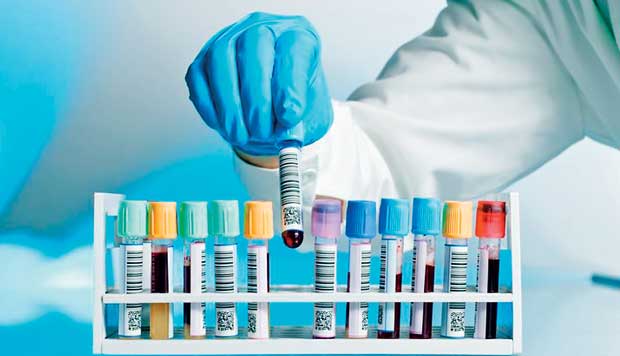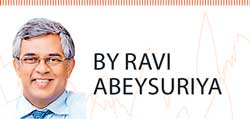10 May 2016 - {{hitsCtrl.values.hits}}

 One is not against the imposition of value-added tax (VAT) so long as essential commodities and public utilities are taxed at a bearable minimum. VAT on healthcare services was exempt in Sri Lanka until May 1, 2016, as the principal purpose of the healthcare service was “protection, maintenance or restoration of the health of those who are sick”. The primary purpose of healthcare service is “protecting, (including maintaining or restoring a person’s health) or diagnosing, treating and if possible curing diseases and health disorders”.
One is not against the imposition of value-added tax (VAT) so long as essential commodities and public utilities are taxed at a bearable minimum. VAT on healthcare services was exempt in Sri Lanka until May 1, 2016, as the principal purpose of the healthcare service was “protection, maintenance or restoration of the health of those who are sick”. The primary purpose of healthcare service is “protecting, (including maintaining or restoring a person’s health) or diagnosing, treating and if possible curing diseases and health disorders”.
Almost all countries charge general consumption taxes on goods and services to consumers. The majority of countries use VAT, which is collected during the production and distribution of goods and services. As of January 1, 2014, 164 countries had VAT, other countries had a single-stage sales tax such as BTT on goods and services supplied to the final consumers.
However, almost all the countries have an exemption (or zero rate) or a reduce VAT rate on essential commodities considered socially desirable such as basic food, healthcare services energy and water. This is primarily to reduce the tax burden on essential commodities that forms a larger share of expenditure among low-income households. In a review done by Price Waterhouse Coopers, in 2014, 31 out of 32 OECD countries and 24 out of 25 African countries either had VAT exemption or a reduced rate of VAT/BTT on healthcare services.
In the absence of a national health insurance scheme in Sri Lanka, imposition of a steep 15 percent VAT on those who are sick, where the majority of the patients are lower middle class who have no choice but to seek healthcare facilities in the private sector is unjustifiable. A majority of them do not wish to go through the hazards and travails of government hospitals in a non-paying ward, because of their overcrowded conditions. Getting a paying room or ward is next to impossible in government hospitals.
Those who work in the private sector and self employed do not have the time to queue up for clinics that require a number to be obtained early morning and wait for one’s turn spending at least half a day to obtain medical services. Smaller government hospitals in the outstations request their patents to obtain blood and scan reports from outside as they do not have such facilities.
For example, even Cancer Hospital Maharagama does not have a PET scanner, which can diagnose cancer with 97 percent accuracy and PET scan at a private hospital costs Rs.150,000. Is it fair to add another 15 percent or Rs.22,500 to patients who cannot even afford the Rs.150,000. Most government laboratory services take two to three weeks to provide diagnostic reports for OPD patients thus aggravating the patient’s sicknesses. Hence, people seek private healthcare services not by choice but due to sheer necessity.
Better ways to generate govt. revenue
Furthermore, Sri Lanka has one of the fastest aging populations in the region. The imposition of a 15 percent VAT on healthcare services even on senior citizens who have served their country and are now struggling to make a living with a fixed interest income is an unbearable burden. Hardly any insurance company in Sri Lanka provides a medical insurance cover for those who are over 65 years.
Most countries look after their senior citizens and provide concessions such as reduced or free travel fares, entry tickets to leisure events to their senior citizens. However, in Sri Lanka, after a devoted service to their country, senior citizens are treated like squashed lemons by charging a 15 percent VAT by the very government that promised welfare to their senior citizens. The overburdened state-funded healthcare services will have more pressure if most senior citizens start seeking healthcare services from government hospitals.
Even in countries that have superior national healthcare facilities such as the UK and China VAT/BTT exemption on private healthcare services are applicable. For example, in the UK, performing medical or surgical procedures with the aim of protecting, maintaining or restoring the health of an individual, nursing sick or injured patients in a private hospital, hospice or nursing home is exempt from 20 percent VAT. But where the service is carried out for a cosmetic reason rather than as an element of medical or surgical treatment, this service is taxable at 20 percent VAT.
The tendency of policymakers globally has been to retain existing BT exemptions and concessions and apply them in the VAT system, especially where those exemptions and concessions apply to services delivered at a business-to-consumer (B2C) level. Basic healthcare is seen as a necessity and given the regressive nature of VAT, providing concessions is seen as appropriate in ensuring fair and equitable outcomes, especially for the aged, poor or infirm.
Some countries exempt healthcare from VAT, whereas others zero-rate it. Zero-rating means that healthcare providers can obtain a VAT refund on their costs and expenses, whereas exemption does not. In the UK prescription medicine is zero rated, not just exempt. Sri Lanka has exempted medicine but not medical services. Sri Lanka has joined a handful of states that charge VAT from medical services spending by the sick and the aged, services which are almost universally exempted in many countries.
Compared to most other costs even telecommunication services, which also has been imposed the 15 percent VAT, are discretionary and citizenry can reduce usage, whereas healthcare expenditures are a misfortune to a family, almost essential (alternative is to die) are sudden and can be very large. Ironically, even if one is fortunate to have a medical insurance cover, medical insurance providers in Sri Lanka will not reimburse the VAT component unless the hospital invoice is obtained in the name of the medical insurance provider.
Since, May 2, 2016, all healthcare service providers and laboratory service providers have commenced adding the 15 percent VAT on the total invoice value, making healthcare services providers make fat margins. They need to be cognizant of the fact that previously they were bearing all input VAT as their input VAT was not previously refundable in Sri Lanka (not zero rated), hence the patients should not be passed on the full impact of the 15 percent VAT.
While no one will disagree that the government needs to substantially increase the tax base and increase tax revenue to gross domestic product (GDP) from 10.6 percent today. However, there are better and more equitable ways to generate government revenue and reduce losses (accumulated losses of SriLankan Airlines alone exceed Rs.110 billion since taking over from Emirates in March 2008), wastage and corruption in government-owned undertakings rather than pass on tax increases to the sick and the aged.
(Ravi Abeysuriya is Group Director/CEO of the Candor group. The views expressed in the article are solely of the writer and do not constitute an opinion of the company or any association the writer represents]
26 Nov 2024 8 minute ago
26 Nov 2024 1 hours ago
26 Nov 2024 2 hours ago
26 Nov 2024 2 hours ago
26 Nov 2024 2 hours ago